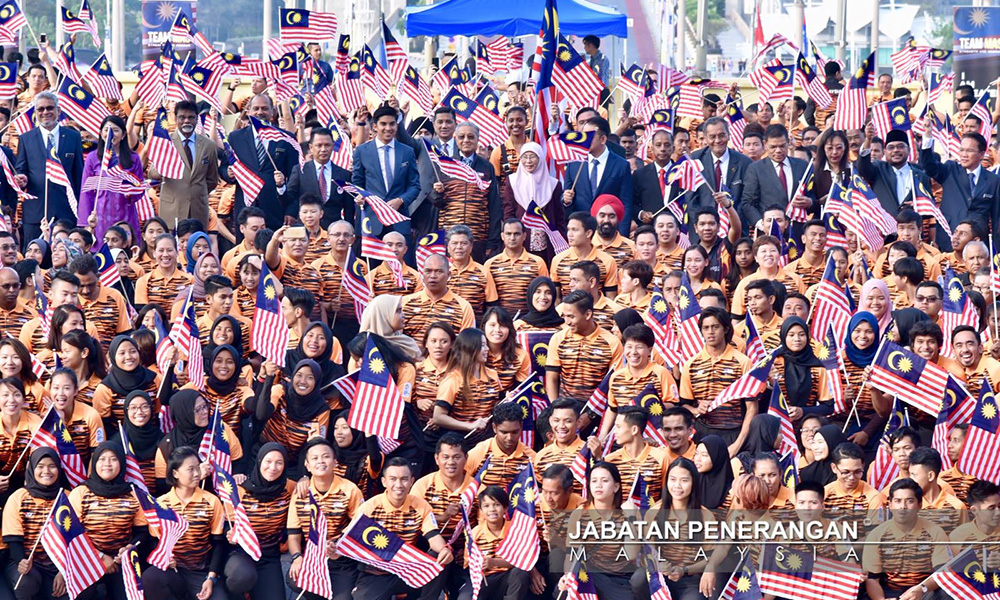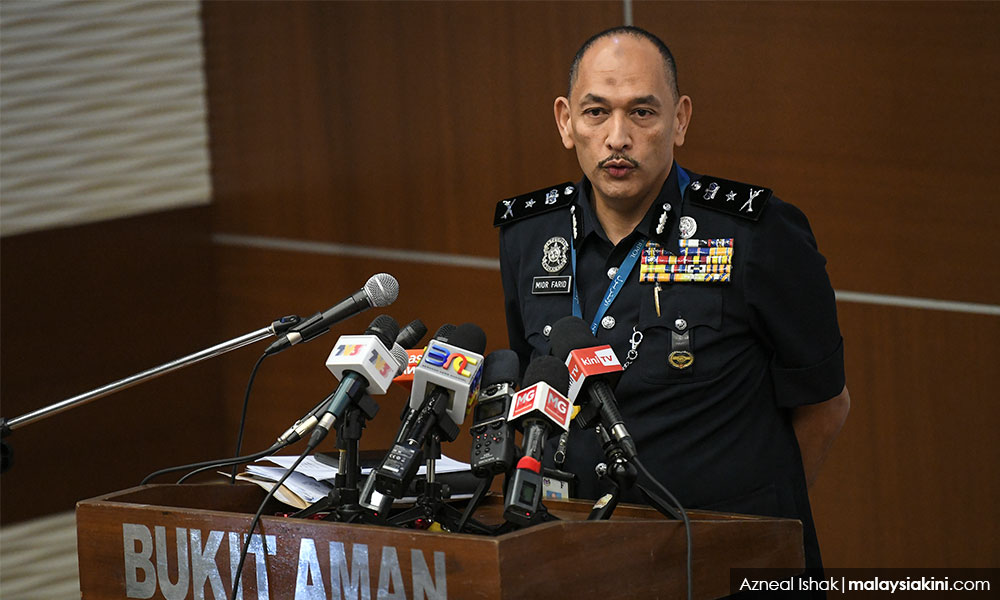
“In most poetic expressions of patriotism, it is impossible to distinguish what is one of the greatest human virtues from the worst human vice, collective egotism.”
- WH Auden
Many readers have emailed me asking me what I thought of the folks who are being investigated for purposely not standing up for the national anthem. This incident took place in Sarawak and has drawn praise and condemnation from various quarters. The “whys” of disrespecting this symbol are not important? I will get to that shortly.
First off, nobody can disrespect the national anthem. 'Negaraku' is merely a song and thus the only people who have any feelings of "disrespect" are the people who attach some value to this song. The evidence of this – people’s hurt feelings – is found in Section 8 (3) of the National Anthem Act 1968,, in which all amendments up to Jan 1, 2006, are incorporated:
(3) For the purpose of this section, failure to comply with subsection (1) without good and sufficient cause and any act or omission which would tend to lower the prestige of the National Anthem in the eyes of the public shall constitute a show of disrespect.
So, when Federal CID (Prosecution and Legal Division) principal assistant director Mior Faridalathrash Wahid (photo, below) said, "We did not take this (reason) into account when investigating. This is because when the national anthem is played, it is the duty of every Malaysian citizen to show respect," it merely means as far as the state is concerned, there is never a good and sufficient cause to disrespect the national anthem. The feelings of the public – lowering the prestige in their eyes – trumps any reason, either logical or farcical, for disrespect.

So, when it comes to people disrespecting symbols, the “whys” are not important because these symbols are not about the people, but rather the state. Whether you choose to imbue those symbols with power is entirely up to the individual, but the reality is that only the state has any power when it comes to such symbols.
Enforcing “respect” towards a symbol has always seemed fascist to me. After all, if you have to force people not to disrespect the national anthem, what does this tell you of the “need” of some people to disrespect what is supposed to be a symbol which represents all that we are supposed to believe in?
Non-Malays are extremely vocal when it comes to issues of patriotism. As a community whose “patriotism” to this country is always questioned, there is this knee-jerk reaction to demonstrate acts of allegiance to the country, knowing full well, the acts of (disrespect) of individuals from the community would be used to tar the whole community.
Non-Malay political power structures are targeted by elements who have weaponised patriotism and who use individual acts to either form or continue narratives that the non-Malays in this country have no real love for this country, beyond the perceived economic advantages this country has given them.
The forced allegiance to symbols and institutions is the means in which the political elite in this country maintain hegemony. When people talk of how the political elite, Umno for instance, claim that they love the country, the flag, race and religion, all the while engaging in corruption and political and religious malfeasance, is indicative of the reality that those who proclaim love for this country really do not love this country.
This is missing the point. Symbols and institutions (non-democratic ones) have never been about the country. There are merely tools of power. These symbols and institutions have been weaponised for the sole purpose of keeping the rakyat in line.
The late American author Tom Wolfe wrote about this in his book – a book I did not enjoy, but it somehow manages to evoke strong feelings in me - "The Electric Kool-Aid Acid Test". The relevant snippet - “That flag is a symbol we attach our emotions to, but it isn't the emotion itself and it isn't the thing we really care about. Sometimes we don't even realise what we really care about, because we get so distracted by the symbols.”
When some people – well-meaning – condemn the act of disrespecting the national anthem, it is because they have imbued the symbol – anthem – with the qualities or aspirations as to what they believe will bind us as a people. The anthem is shorthand for everything they believe this country should stand for, not necessarily how the politics of the time defines us.

Take the symbol of the royal institution and the state attacks against lawyer Fadiah Nadwa Fikri (above). When she wrote her piece, which has been described and investigated as "seditious", the three important points she raised can best be summed up in her own words:
“Any attempt to break the fortress built around this existing system in order to democratise the space for people to assert their political existence is often met with harsh criticism and rebuke. As a result, the power to shape the future and direction of the country remains in the hands of the privileged few, thus further alienating the voices of the many, in particular, the marginalised. Genuine democracy which seeks to place people at its heart, therefore, remains out of reach.”
Yes, respect for national symbols and dissent are not mutually exclusive. Hence, any attempt to divorce symbols from the political or social reality of the country, however well-intentioned, is misguided and ultimately furthers racial and religious narratives that create more problems for the country, instead of the perceived intention of those symbols as totems for national unity.
Which is not to say that I do not invest in symbols. Here is an example, – and this is a strange one considering the role of the PDRM in enforcing sanctions against dissent – the words of Inspector-General of Police Abdul Hamid Bador in his speech to a graduating class at the police academy:
"We must be brave to admit the fact that police have long been plagued with internal problems, corruption, abuse of power, drug addiction and many other wrongs which have been committed by not just a few, but many among us.
"And I have said this several times at forums before, if we are still arrogant, selfish and unwilling to admit our mistakes, we will not get anywhere."
If we have to invest in symbols to form some kind of societal cohesiveness, I would rather invest in words like these – symbols if you like – which are more important than forcing people to stand up for the national anthem, or any other kind of forced respect for symbols and institutions of this country.
When Chief Justice Tengku Maimun Tuan Mat said: “Rather, such powers serve to uphold constitutional supremacy. The notion expressed in Indira Gandhi’s case that the entrenchment of the principle of separation of powers within the basic structure gives true meaning to the core preserve of constitutionalism.” Her words resonate more than the lyrics of a particular song, memorised by rote, and exemplifies what we are struggling with.
When it comes to respecting symbols of supposed great importance, your mileage may vary.
S THAYAPARAN is Commander (Rtd) of the Royal Malaysian Navy. A retired barrister-at-law, he is one of the founding members of Persatuan Patriot Kebangsaan. - Mkini



No comments:
Post a Comment
Note: Only a member of this blog may post a comment.